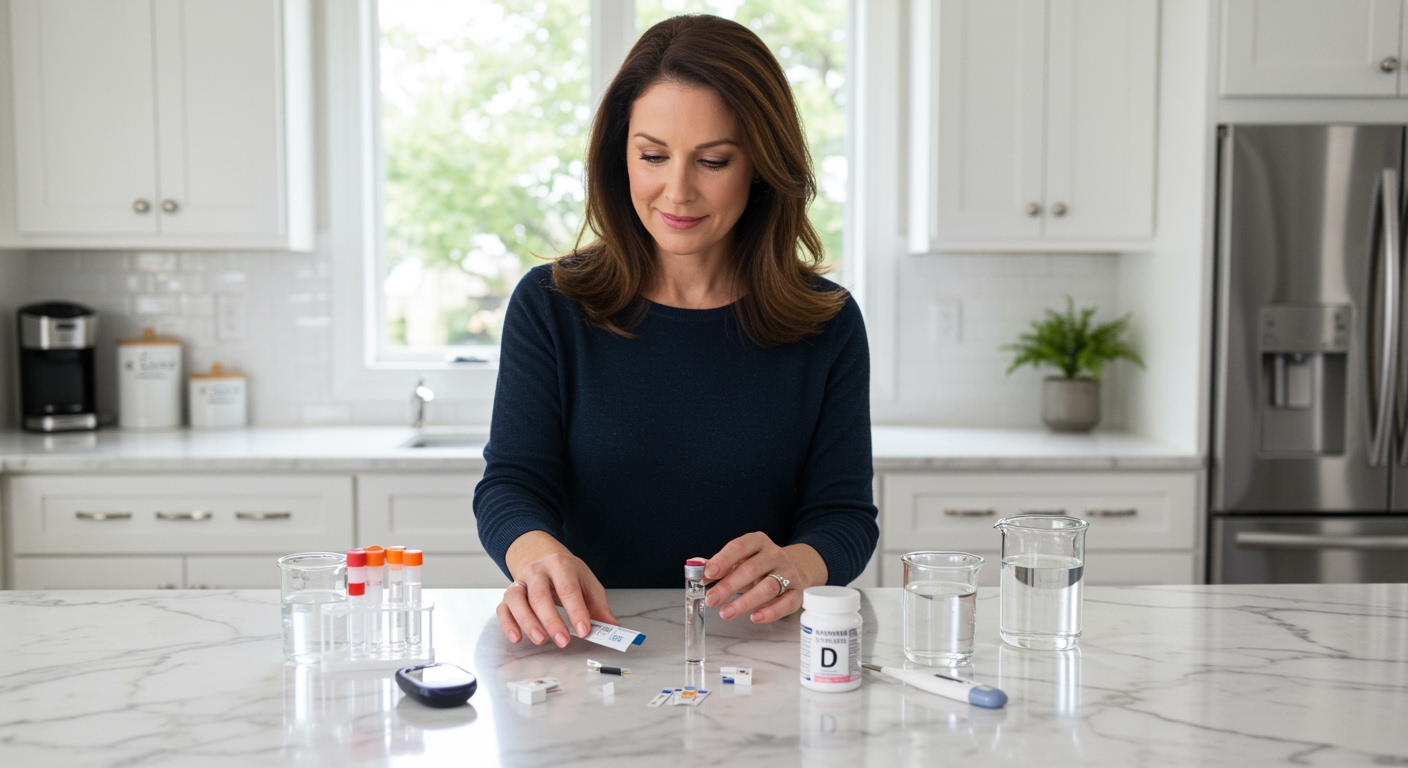✪ Key Highlight: New research shows tears mirror blood glucose levels while saliva reflects vitamin D status, potentially ending painful blood tests.
Introduction
Imagine checking your blood sugar without a single needle prick.
Scientists have discovered that tears closely mirror blood glucose levels and saliva may reflect vitamin D status, according to groundbreaking research published in the journal Physiologia.
Hi, I’m Abdur, your nutrition coach and today I’m going to analyze this revolutionary study that could transform how we monitor diabetes and vitamin D deficiency.
What Makes This Discovery So Important?
This research represents a major breakthrough in medical testing because it offers hope for millions who fear needles.
The study found that tears strongly reflect blood glucose levels, making them a promising tool for diabetes monitoring.
Scientists also discovered that saliva may be useful for assessing vitamin D status, especially in people with type 2 diabetes.
Vitamin D, also called calciferol, is a fat-soluble nutrient that helps your body absorb calcium and supports immune function.
Your body makes vitamin D when your skin gets sunlight exposure, but many people still develop deficiencies.
Low vitamin D levels connect to heart disease, autoimmune disorders, diabetes, and frequent infections.
✪ Fact: Over 40% of Americans have vitamin D deficiency, making easier testing methods crucial for public health.
How Do Tears And Saliva Compare To Blood Tests?
The research team discovered that tears provide remarkably accurate glucose readings when compared to traditional blood tests.
Saliva testing shows promise for vitamin D assessment, though researchers need more studies to confirm its clinical accuracy.
Other scientists at the University of British Columbia found that measuring insulin levels in saliva could help predict type 2 diabetes risk.
Dr. Jonathan Little explains that detecting high insulin levels before blood glucose rises could allow for early intervention.
This early detection approach could help people make lifestyle changes before developing full diabetes.
Saliva contains biomarkers like 1,5-anhydroglucitol that strongly link to blood levels and help screen for diabetes.
✪ Pro Tip: Early diabetes detection through saliva testing could prevent complications that affect millions worldwide.
What Are The Current Limitations?
The main challenge is that biomarker concentrations are much lower in saliva and tears compared to blood.
This means scientists need highly sensitive testing equipment to measure these markers accurately.
Researchers must also refine their methods to ensure consistent and reliable results across different populations.
The current studies involved small sample sizes, so larger trials are needed to validate these findings.
Scientists need to establish reference ranges for normal and abnormal levels in tears and saliva.
The technology for portable testing devices still requires development before widespread use becomes possible.
✪ Note: Despite limitations, this research opens doors to revolutionary changes in how we monitor chronic health conditions.
When Could This Technology Become Available?
Experts caution that more research is needed before saliva and tears can fully replace blood tests.
The development of portable testing devices could make home monitoring much easier and more comfortable.
This technology would be especially helpful for people who need regular monitoring, like those with diabetes.
Home testing could reduce healthcare costs and improve patient compliance with monitoring schedules.
The convenience factor could encourage more people to track their health markers regularly.
As technology improves, these non-invasive tests could become part of routine healthcare within the next decade.
✪ Fact: Non-invasive testing could increase health monitoring compliance by up to 300% according to patient preference studies.
The Bottom Line
This research represents a significant step toward pain-free health monitoring that could transform diabetes and vitamin D management.
The future of healthcare lies not in what we can endure, but in what we can make effortless.
I would love to hear your thoughts about this breakthrough – do you think tear and saliva testing could replace your current blood tests, and what concerns do you have about this new technology?
References
At NutritionCrown, we use quality and credible sources to ensure our content is accurate and trustworthy. Below are the sources referenced in creating this article:
- News Medical: Can saliva and tears replace blood tests for vitamin D and glucose
- Pharmacy Times: Non-invasive saliva tests could offer early clues for diabetes and obesity risk
- PMC: Saliva as a diagnostic tool for monitoring health conditions
- Greater Good: Could tears and saliva replace blood tests
- News Medical: Could vitamin D be the missing link in managing type 2 diabetes





